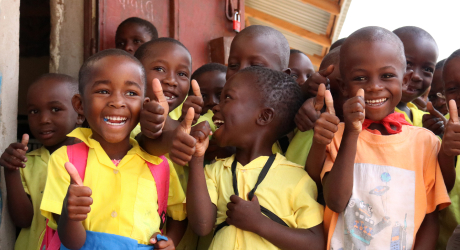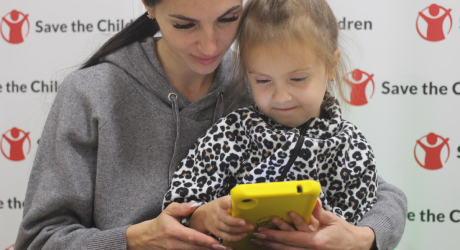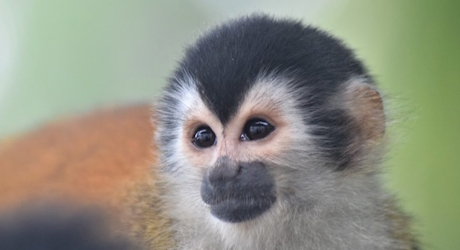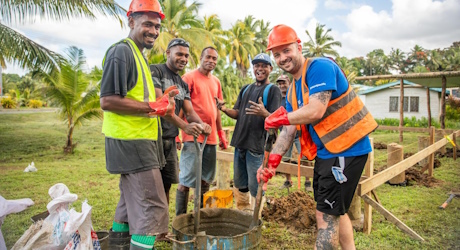Footprints Project
Since 2005, travelers like you have helped us change the world through micro-donations.

-
A total of
3667
Travelers
-
donated
$27273.62
(97% funded) -
to help reduce
Poverty
-
impacting
1000
people -
in
Kenya
Project Background
Kenya is currently experiencing high levels of extreme food insecurity. During food crisis situations, preventing and treating child under-nutrition is critically important to ensure young children’s continued healthy growth, development, and wellbeing.
Currently there is a critical gap in addressing the needs of vulnerable children experiencing emergency hunger levels. In addition to ensuring children receive the right amount and types of food, it is vital for them to have responsive caregivers who protect them from toxic stress and violence, help them feel secure and loved, and provide opportunities to play and learn.
This pilot project will support parents and caregivers of children aged 3-8 years old through evidence-based educational content and multimedia messaging and activities. These materials will provide effective coping strategies including play-activities in difficult environments. Project activities will be integrated into and delivered through Plan's existing interventions responding to the hunger crisis, increasing the positive impact for children and their families.
Project Overview
The overarching goal of the project is to reduce the short and long-term impacts of food insecurity and the hunger crisis on the development, healthy growth, and wellbeing of young children, enabling them to survive, grow and thrive despite the challenging circumstances they are growing up in. This will be achieved by developing culturally and contextually appropriate multimedia that can be used by parents and caregivers to develop healthy coping mechanisms for themselves and their children.
Following FY24 and the development, testing, adapting and pilot implementation the project will be rolled out more broadly. The FY25 program plan will include specific outreach targets as well as behavioural/wellbeing change markers for caregivers and children.
Project Outcomes
Outcome 1: Develop and pilot a project which can be scaled and leveraged into existing Plan International and global Humanitarian Responses to create the greatest impact.
1.1 Facilitate a co-design process with Plan Country Offices (COs), Plan MEESA Regional Hub and Ubongo.
1.2 Conduct consultations with local communities and educators, including a landscape and user analysis, to assess the needs of children and parents/caregivers.
1.3 Review and curate Ubongo content based on needed/desired topics selected through community consultation.
1.4 Translate and revise 1-2 ‘bundles’ of multi-media Ubongo content which is contextually relevant.
1.5 Real-time learning around process and operational requirements which inform plans for future scale.
Outcome 2: Strengthen parents’/caregivers’ knowledge, skills, and confidence to continue to provide key nurturing care practices for their young children, and to cope in these situations.
2.1 Train cohort of staff and volunteers who facilitate existing interventions on the developed pilot content and implementation of activities targeting parents and caregivers.
2.2 Facilitate small scale, rapid testing of parent content through existing interventions, ensuring content packages are tailored to engage fathers, mothers and other caregivers where appropriate.
Outcome 3: Support young children’s learning and wellbeing through the use of playful, interactive video and radio content.
3.1 Train cohort of staff and volunteers facilitating existing interventions on the developed pilot content and implementation of activities targeting children.
3.2 Facilitate small scale, rapid testing of children’s content through existing interventions for children, ensuring content is appropriate for age, culture and context.
Success of the initial pilot stage will be measured in relation to the above deliverables for each specific outcome. Rapid testing, consultation and feedback will guide this process which will be monitored by Plan International program staff and Monitoring Evaluation Research & Learning experts from the Plan International teams with support from Ubongo experts.
Partner and Community Involvement
Plan International Kenya staff already working in the community to deliver emergency response initiatives for the hunger crisis will play a key role in co-designing content, implementation and facilitating broader community consultations as part of the design phase.
How does this project fit into a larger strategy?
At Plan International Australia we seek to ensure vulnerable and excluded children and young people – especially girls and young women – are safe, more resilient and enjoy greater realisation of their rights. We do this by working with a range of stakeholders to promote positive attitudes, behaviour and practices, and improve access to resources, services and support. We implement a rigorous framework to maintain the quality of our programs, based on a theory of change with clear outcomes and measurements, and evidence of the program’s impact.
Our theory of change and work is crystallised into five priority domains, where we support children and young people to Learn, Lead, Decide, Thrive, Survive. The impacts of this project will support children to:
Learn: have the access to the skills and education for work and life
Thrive: grow up cared for and free from violence and fear
Survive: increase the impact of our humanitarian work ensuring children experiencing crisis and disaster have the best chance of survival and an unharmed future.
Traveling soon? When you buy travel insurance with us, you can make a contribution towards a cause you care about.
Get a quote






